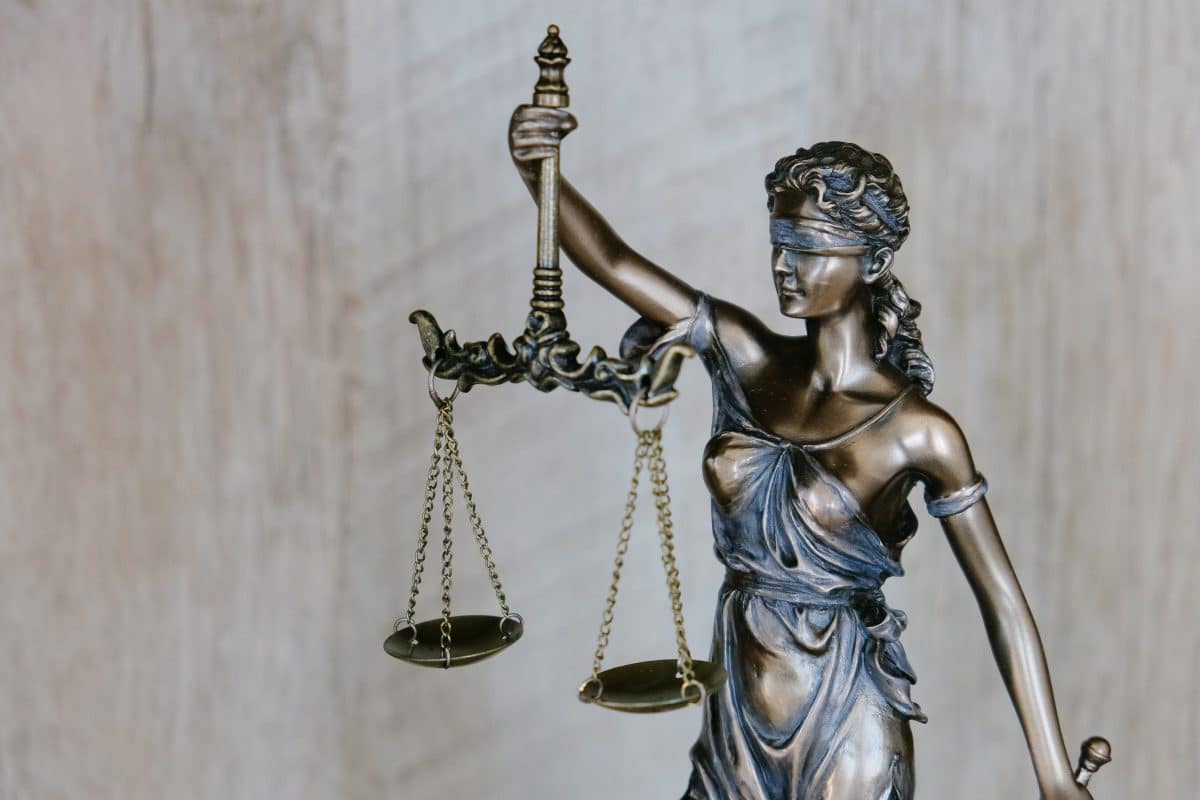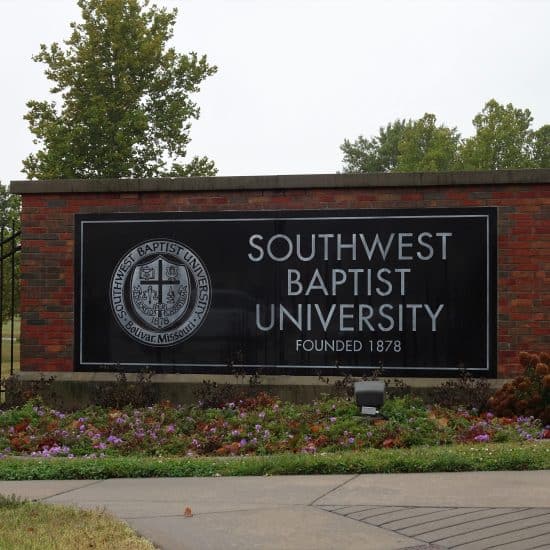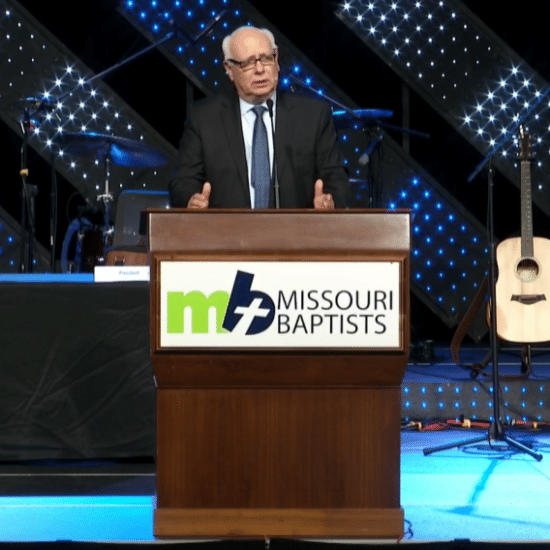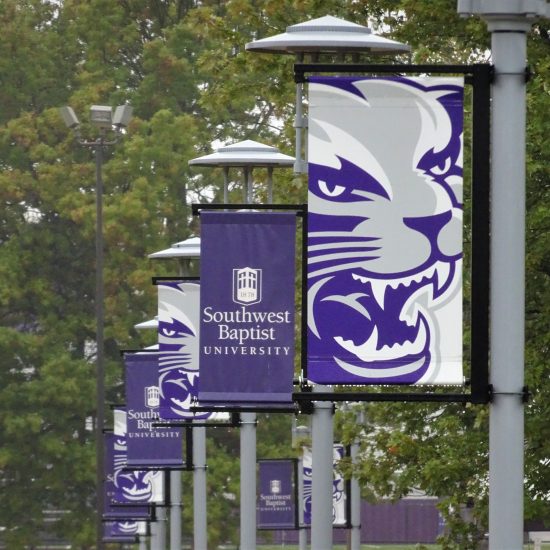
After a Southwest Baptist University professor and a student joined a legal effort Friday (March 5) to block the new governing documents for their school in Bolivar, Missouri, SBU’s attorney responded Tuesday by claiming the school’s legal documents are beyond such legal scrutiny because the school is religious.
Amid a two-year controversy as some Missouri Baptist Convention leaders sought to exert greater control over SBU, the SBU trustees appointed by the MBC adopted new articles of agreement and bylaws that name the MBC as sole corporate member and declare SBU trustees have a fiduciary responsibility to the MBC.
Donald Jump, a Baptist layman in Bolivar, filed a petition with the Circuit Court of Polk County on Feb. 22 to block the new governing documents. Before a hearing on his motion, a professor and a student filed a similar joint petition to intervene but under pseudonyms because of their current statuses with SBU. Raising concerns about issues like legal contracts and accreditation, the two requested the court allow them standing to challenge the proposed governing documents.
 As it had done in response to Jump’s filing, SBU requested the court not allow the professor and student to intervene. But this time, SBU’s attorney argued the school’s religious status made it immune from such legal scrutiny.
As it had done in response to Jump’s filing, SBU requested the court not allow the professor and student to intervene. But this time, SBU’s attorney argued the school’s religious status made it immune from such legal scrutiny.
After briefly noting that the professor and student seeking status to intervene “take issue with the amended articles” that name the MBC as “sole member of SBU and that further provides that MBC has a right to approve the sale of certain parts of SBU’s campus,” the school’s filing quickly shifts to reframe the dispute as a theological one.
“The amended articles being challenged by the purported Intervenors also adopt the Baptist Faith and Message 2000 (Article IV, Section 1) and states that the Holy Bible is the final authority for faith and practice in SBU operations (Article III, Section 1),” SBU’s filing reads.
“The dispute alleged is not between SBU and MBC, but between Intervenors’ religious opinions on one side and the Baptist entities on the other side,” the filing adds. “Intervenors’ attempt to inject their religious opinions in opposition to the proposed charter is not a controversy in which the Court should be entangled.”
However, neither Professor John Doe nor Student Jane Doe mentioned the BF&M 2000 or other theological issues in their filing. Rather than expressing “religious opinions,” the two offered legal arguments involving issues like faculty contractual agreements and the school’s accreditation.
SBU’s latest filing goes on to suggest that as a religious institution, SBU’s legal documents cannot be legally challenged since the school’s mission is spiritual.
“The relationship of MBC and its entities is an essentially religious and spiritual relationship, expressed in terms compatible with corporate law,” SBU added. “The confessional and corporate relationship between MBC and SBU is clearly an ecclesiastical matter and one which the courts of this state should not become involved.”
SBU’s filing does not explain why the need to change the legal relationship between SBU and MBC in the new governing documents if the relationship between them is “essentially religious and spiritual.”
Citing one ruling related to the MBC’s nearly 17 years of litigation against five other institutions, SBU claims the courts cannot settle disputes like the one over SBU’s new governing documents.
“Federal cases and cases issued by Missouri appellate courts have long held that courts will not become involved in ecclesiastical disputes,” SBU wrote.
SBU cited a 2019 appeals court ruling in the case the MBC brought against Missouri Baptist University in St. Louis. In that ruling, the court refused to consider some of MBU’s arguments because those claims would entangle the court in sorting out the religious and ideological dispute within Missouri Baptist life.
However, that ruling came in a case in which the courts did, in fact, become involved in legal questions about new governing documents. The university in that case had changed its governing documents, and the MBC was granted the right to legally challenge those legal documents. The school ultimately lost the case, seeing its new governing documents declared invalid.
Additionally, the MBC won cases against two other institutions after being allowed to challenge new governing documents, lost multiple cases against another institution, and dropped its suit against Word&Way. While the courts avoided efforts to litigate theological disagreements, the courts did not refuse to consider legal challenges to governing documents merely because the five institutions are religious.
Other Legal Arguments
After urging the court to reject the intervening petition on religious grounds, SBU’s filing also responds to the legal claims by the professor and student.
SBU argues the petition from the professor and student includes “vague claims” since the professor does not mention his contractual employee status or if he has intellectual property that is shared in ownership with SBU. And it dismisses claims by Jane Doe, saying she “claims to be a student” who “has yet to even obtain a degree from SBU.”
The two filed with pseudonyms because, as they explained in their filing, “the MBC and SBU have engaged in a pattern of harassing, oppressive, and retaliatory conduct adverse to those who have opposed their viewpoints and desires.”
SBU’s filing also dismisses the concerns about accreditation raised by both the professor and student, arguing the petition includes “no facts which would indicate that SBU’s amended articles would result in SBU losing accreditation in a concrete way.”
“[Jane Doe] does not allege that SBU has any accreditation issues or that they are being impacted if the Court signs the decree of amendment. The reason she does not make this allegation is because in fact SBU is fully accredited,” SBU’s filing reads. “Further, current federal accrediting regulations prohibit the accreditor from restricting a university’s religious mission-based decision.”
The filing from the professor and student cites several standards from the Higher Learning Commission, SBU’s accreditation body, to explain how the new governing documents run afoul of accrediting standards.
Additionally, Jump’s initial petition already on record with the court cited Word&Way reporting to note SBU’s accreditation status has already seen concerns arise in concrete ways. After a complaint filed last fall, the HLC opened an inquiry that is ongoing. The HLC scheduled a focused visit in May, for which SBU will have to pay. And that HLC decision changed SBU’s accreditation pathway from the “open pathway” to the “standard pathway,” which means SBU would have to undergo a full comprehensive evaluation more frequently.
As Jump noted in a new filing with the court on Friday, that shift is already a negative impact resulting from the new governing documents.
“Taking actions that go against HLC’s and other accrediting bodies’ criteria may result in a downgrade of the University’s status, or even a loss of accreditation,” he wrote. “Over the years we had worked very hard to achieve the ‘Open Pathways” status from HLC, which is viewed as the most desirable of HLC’s three pathways for reaffirmation of accreditation.”






